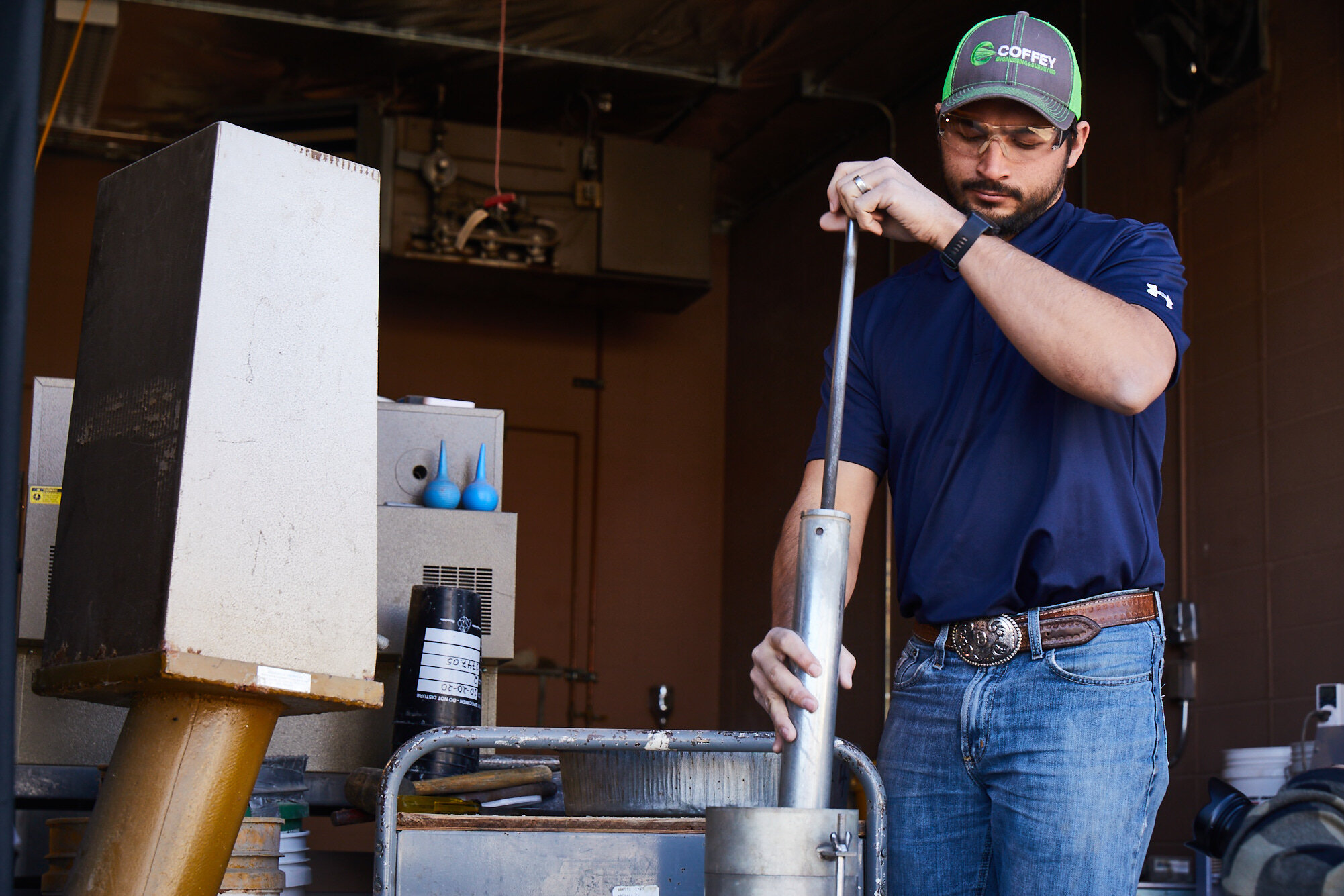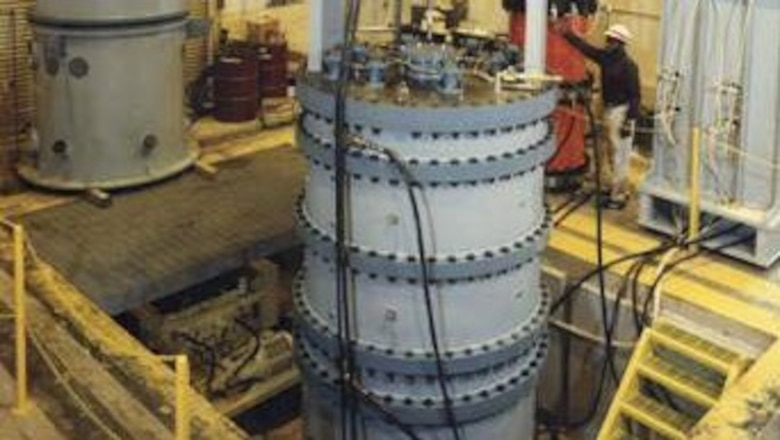Study Precision: Materials Test Lab Accuracy Unleashed
Wiki Article
Putting Materials to the Test: Checking Out the Function of Products Examination Labs
Products test labs play an essential function in making sure the top quality and integrity of various materials used in industries such as building, manufacturing, and aerospace. These labs conduct rigorous testing to review the efficiency, toughness, longevity, and safety and security of products, allowing business to make educated choices concerning their usage in products and structures. Via a combination of innovative techniques and specialized equipment, products examination labs are able to examine the residential or commercial properties of metals, polymers, compounds, and various other materials under various problems and stressors. The results gotten from these examinations offer valuable understandings into product behavior, allowing designers and designers to maximize their products and processes. This write-up will certainly explore the importance of products testing, the kinds of products tested, screening methods and equipment made use of, in addition to the applications of products test results. Additionally, it will certainly discuss future fads in materials screening, highlighting the constant advancements in this area.Relevance of Products Screening
Frequently analyzing the top quality of materials is essential in making certain the stability and safety and security of items in numerous sectors. This is where materials testing plays an essential duty. Products screening entails subjecting products to numerous examinations and experiments to review their mechanical, physical, and chemical residential or commercial properties. By conducting these tests, producers and providers can guarantee that their items satisfy the needed requirements and specifications.One of the vital reasons that materials screening is very important is the assurance of item quality. Via extensive testing, suppliers can determine any flaws or weaknesses in the products utilized for their items. This enables them to make essential enhancements to enhance the general quality and efficiency of their products. Materials screening helps in determining possible problems that might arise during the item's lifecycle, such as wear and tear, corrosion, or structural failings. By dealing with these problems early on, makers can protect against costly recalls, legal actions, and reputational damage.
By subjecting products to different tests, manufacturers can establish their resistance, longevity, and toughness to outside factors such as warmth, pressure, or chemicals. Whether it is automotive parts, medical devices, or building and construction materials, materials screening helps in recognizing any type of potential security risks and creating proper measures to minimize them.
Types of Products Evaluated
Numerous types of products are evaluated in products test laboratories to assess their mechanical, physical, and chemical properties. These products can encompass a vast array important, consisting of metals, polymers, porcelains, composites, and even all-natural materials such as wood and concrete.Steels are commonly tested due to their prevalent use in various markets. Composites, which consist of two or more various products, are reviewed to recognize their total efficiency, consisting of aspects like adaptability, toughness, and stamina.
Natural products like wood are tested to assess their toughness, wetness content, and resistance to degeneration (materials test lab). Concrete is one more commonly examined material, with tests concentrating on its compressive strength, durability, and resistance to ecological elements
Along with these materials, products examination labs likewise evaluate layers, paints, adhesives, and different other materials utilized in construction, production, and other sectors. By subjecting these materials to strenuous testing, scientists and engineers can collect valuable data to educate material option, design optimization, and top quality control processes.
Testing Methods and Tools
Evaluating strategies and equipment play a critical role in products examination labs for examining the mechanical, physical, and chemical properties of different products. These techniques and devices are crucial in ensuring the high quality, integrity, and safety of materials utilized in numerous sectors such as aerospace, automotive, building, and clinical.One generally used testing technique in products test labs is mechanical testing, which includes subjecting products to numerous pressures or loads to determine their stamina, firmness, ductility, and various other mechanical buildings. This is frequently done using devices such as universal testing makers, which can use visit tensile, compressive, and flexing pressures to examine samplings.
Physical screening strategies are also used to analyze properties such as density, viscosity, thermal conductivity, and electric conductivity. Equipment such as density meters, viscometers, thermal conductivity analyzers, and electric conductivity meters are made use of to execute these tests properly.
Chemical screening techniques are utilized to figure out the chemical structure and purity of materials. Techniques such as mass, spectroscopy, and chromatography spectrometry are generally utilized, together with web link specific equipment designed for these objectives.

Applications of Materials Test Outcomes
The outcomes of products checking give beneficial insights right into the efficiency and suitability of different products for specific applications in various industries - materials test lab. These test results play an essential role in identifying the high quality, sturdiness, and security of materials utilized in producing processesOne of the key applications of materials examination results remains in the area of building. Engineers and architects count on these outcomes to choose proper materials for building frameworks, such as bridges, high-rises, and property buildings. By conducting tests on products like steel, lumber, and concrete, they can make sure that these materials meet the called for requirements and can endure various ecological conditions.
In the aerospace industry, products test outcomes are necessary in figuring out the suitability of products for aircraft parts. By subjecting materials to rigorous screening, engineers can assess their mechanical residential properties, resistance to warm and deterioration, and capability to withstand high-stress problems. This information is essential in making sure the safety and dependability of airplane.

Future Patterns in Materials Screening
In the realm of products screening, improvements in materials evaluating approaches are shaping the trajectory of the area, ushering in a brand-new age of development and precision. One future fad in materials testing is the assimilation of man-made intelligence (AI) and device learning formulas into testing procedures. These techniques allow for the evaluation of product residential properties without triggering damage or change to the sample, making them ideal for examining irreplaceable or important products.Final Thought
To conclude, products testing plays an essential duty in different industries by making sure the high quality, safety, and performance of products utilized in products and structures. It involves examining a large range of products utilizing various strategies and equipment to assess their mechanical, physical, and chemical properties. The results obtained from materials testing are used to make educated choices in material option, manufacturing, and layout processes. As technology developments, products examining laboratories will certainly remain to adjust and improve their approaches to fulfill the advancing needs of industries.With a combination of advanced methods and specific tools, materials test laboratories are able to evaluate the properties of steels, polymers, composites, and other materials under various conditions and stressors. By conducting tests on materials like concrete, steel, and hardwood, they can guarantee that these materials satisfy the needed standards and can hold up against different environmental problems.
In the aerospace market, materials examination results are essential in identifying the viability read the full info here of products for airplane components. By checking products for their stamina, flexibility, and resistance to influence, producers can pick the most appropriate products for different automobile elements, such as body panels, engine parts, and safety features.In the world of materials testing, innovations in materials examining techniques are forming the trajectory of the field, ushering in a new period of technology and precision.
Report this wiki page